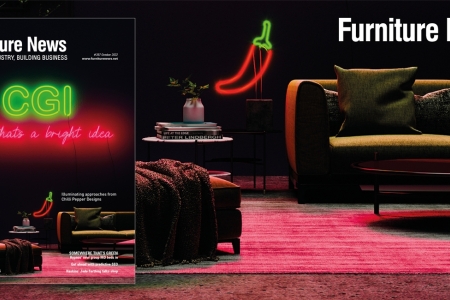The European Parliament is cracking down on misleading environmental claims – but the trade may not find it easy is to move on from falsifications that are practically embedded in its promotional lingo. Here, Tom Bourne, creative director at interiors communications agency Select First, explains why he signed up to the Anti-Greenwash Charter, and what the movement could mean for product marketing …
The European Parliament has taken the first step [see related] in combatting greenwash with the overwhelming approval of a directive that will consign generic environmental claims and misleading product information to the bin. Thankfully. We’re going to have to wait a bit for the directive to become law – sometime in early 2026 – but when it comes, it will be welcome indeed.
Of course, the UK will not be subject to the law, but I don’t think that matters so much. Product suppliers will be changing marketing materials, packaging and much more as a result, and if they are doing it for Europe, it makes a lot of sense just to roll out those changes to UK.
So, in around two years, we’ll see the use of phrases like ‘environmentally friendly’, ‘natural’, ‘biodegradable’ and more binned if the product supplier can’t substantiate those claims with facts. Significantly, the directive will also stop companies describing products as ‘climate neutral’ or ‘climate positive’ if they use carbon offsetting to achieve that goal.
Alongside the EU’s green claims directive still being discussed at Parliamentary committee stage, this will see industries like furniture and flooring face substantial change when it comes to their messaging around green issues. How much this will impact a company, though, will depend very much on how hard they’ve gone into sustainability.
I primarily work in flooring, and there seems to be two camps when it comes to sustainability – those that do talk about it, and those that don’t. For those manufacturers that have embraced sustainability the task of change is alarming, for while they have been taking strides in developing better and less-impactful products and manufacturing processes, they have also been in a race to be seen as the most sustainable company around.
This is more apparent in the commercial sector, where it has become a sales and margin winner. Here, it’s not unheard of for specifiers to pay more for an otherwise equivalent product if it can demonstrate better environmental performance than another. This isn’t a bad thing in itself, but you can see that why it’s easy to think a company’s drive to sustainability is less about protecting the planet and more about boosting profits.
So, what we have now is a situation where terms like ‘climate neutral’, ‘carbon neutral’ and ‘climate positive’ make all-too regular an appearance. These slogans have become embedded at the heart of company and product marketing, but the truth is that products and operations are none of these things. Everything has an impact – the product’s materials, the energy used to make the product, its disposal or recycling and operating the company all leave a trace on the planet.
The trouble is that these slogans seem so attractive that companies can’t help but use them, and often in ways that aren’t particularly transparent or fair. You don’t have to look very far or very deep to find claims that talk about neutral status with very little mention of what that actually looks like in real terms and figures, or how it’s achieved. For everyone, the purchase of carbon credits – offsetting – to achieve the magic zero is the only way to get there, but not everyone is happy to talk about it. Smoke and mirrors are in full effect.
Some companies have been open about using credits – Interface’s Carbon Neutral Floors programme is an example of this (it will have to change that name though), but many do their level best to cover it up by over-emphasising the environmental prowess of materials, green energy usage or operational GHG emission reductions.
It’s a confusing picture that makes it almost impossible to really assess just how sustainable a product or company is without a doctorate in Scope 1, 2 and 3 emissions. Throw in words like ‘aspire’ and ‘aim’ alongside, and ambiguity is heightened yet more. Simply, it’s the marketeer’s intent to create a great story at the expense of misleading or misrepresenting their performance to end-users.
Forcing companies away from headline-grabbing statements that obscure the true picture can only be a good thing. But it shouldn’t really need legislation in the first place. Companies should be acting responsibly and presenting products in a way that makes it easy for end-users to gain an accurate, true and fair representation of environmental performance.
It’s our hope that involvement as a certified signatory of the Anti-Greenwash Charter will encourage others and begin a drive to better openness and transparency in the industry without the force of regulations.
But however far the EU rules reach in the UK, this may well be a good opportunity for those that don’t talk about sustainability to restore some balance. After all, some of these companies have made excellent strides in the development of better products and processes – they just aren’t quite as good at shouting about it.











